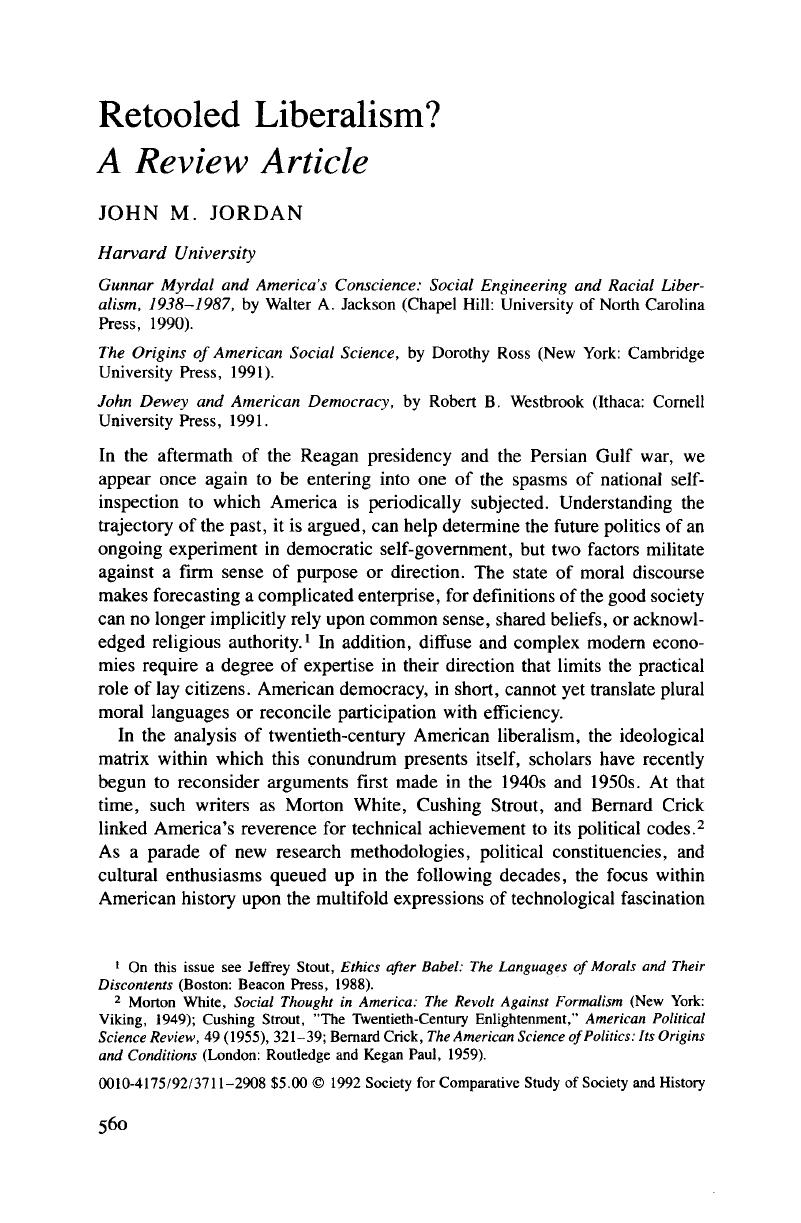No CrossRef data available.
Article contents
Retooled Liberalism? A Review Article
Published online by Cambridge University Press: 03 June 2009
Abstract

- Type
- CSSH Discussion
- Information
- Copyright
- Copyright © Society for the Comparative Study of Society and History 1992
References
1 On this issue see Stout, Jeffrey, Ethics after Babel: The Languages of Morals and Their Discontents (Boston: Beacon Press, 1988).Google Scholar
2 White, Morton, Social Thought in America: The Revolt Against Formalism (New York: Viking, 1949);Google Scholar Strout, Cushing, “The Twentieth-Century Enlightenment,” American Political Science Review, 49 (1955), 321–39;CrossRefGoogle Scholar Crick, Bernard, The American Science of Politics: Its Origins and Conditions (London: Routledge and Kegan Paul, 1959).Google Scholar
3 Hughes, Thomas P., American Genesis: A Century of Invention and Technological Enthusiasm (New York: Viking, 1989);Google Scholar Tichi, Cecilia, Shifting Gears: Technology, Literature, Culture in Modernist America (Chapel Hill: University of North Carolina Press, 1987).Google Scholar
4 Dewey, John, Logic: The Theory of Inquiry (1938), in Boydston, JoAnne, ed., John Dewey: Later Works, vol. 12 (Carbondale: Southern Illinois University Press, 1985), 84, emphasis added.Google Scholar
5 Dewey testified that “some of [Veblen's] distinctions … have been quite fundamental in my thinking ever since I became acquainted with them” (Dorfman, Joseph, Thorstein Veblen and His America (New York: Viking, 1934), 450).Google Scholar
6 Dewey to Mitchell, December 5, 1934, in Wesley Clair Mitchell papers, Rare Book and Manuscript Collection, Columbia University.
7 The review can be found in John Dewey: Later Works, vol. 8, pp. 364–66.
8 Dewey, John, “Logic,” Encyclopaedia of the Social Sciences, vol. 9, p. 602.Google Scholar
9 See The Public and Its Problems (1928), in John Dewey: Later Works, vol. 2, pp. 365–6.Google Scholar
10 Rorty, Richard, Consequences of Pragmatism (Minneapolis: University of Minnesota Press, 1982), 56, n. 38.Google Scholar


